I managed to catch the Northern Lights twice in 2024. Both times were local near Edinburgh where I live, and it was just absolutely stunning.
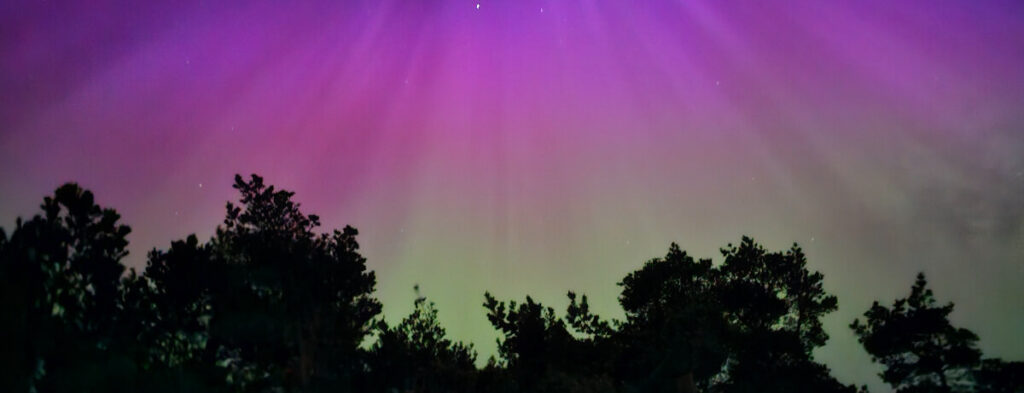
May 2024: Pentland Hills
I was camping solo up in the Pentlands. Proper tent setup, quiet spot, facing north with a clear view over the city of Edinburgh. It’s my favourite spot, which I won’t give away easy!
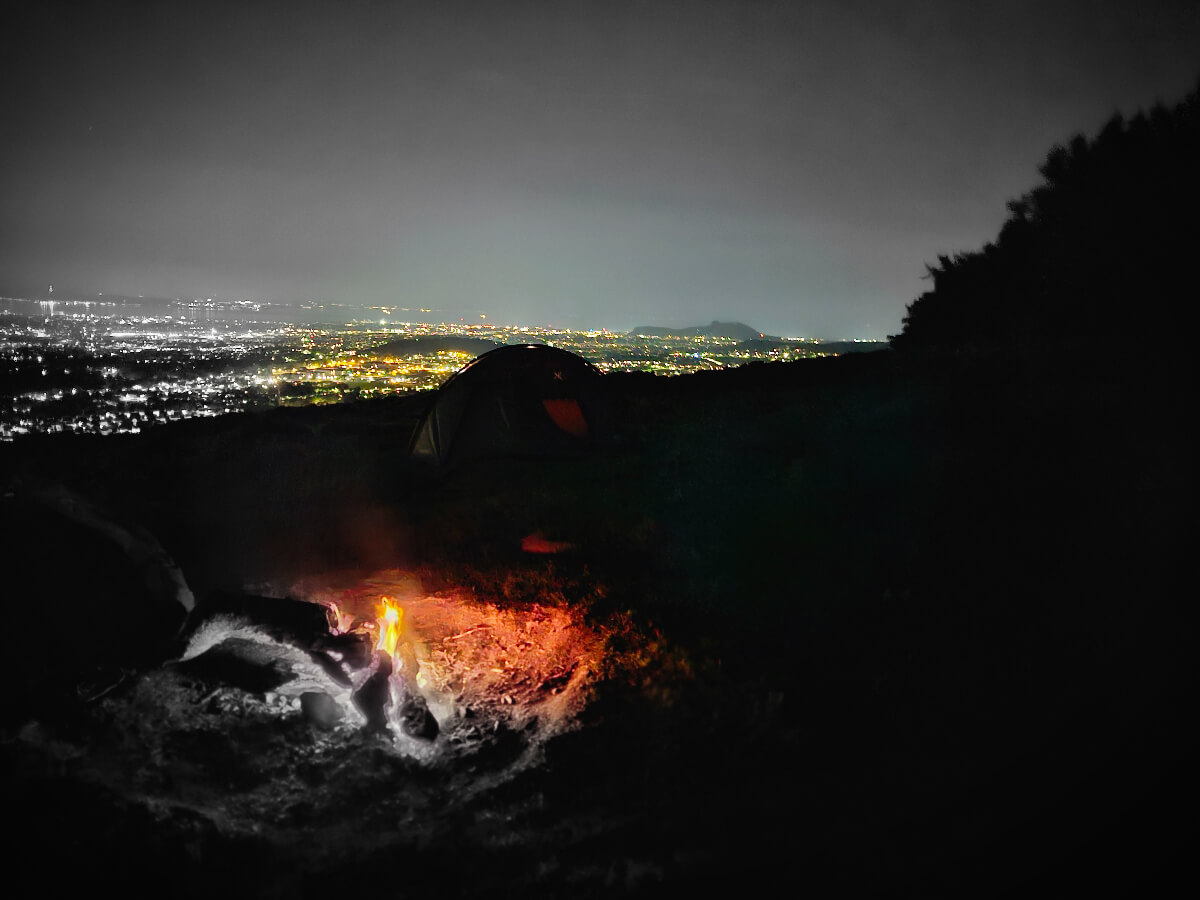
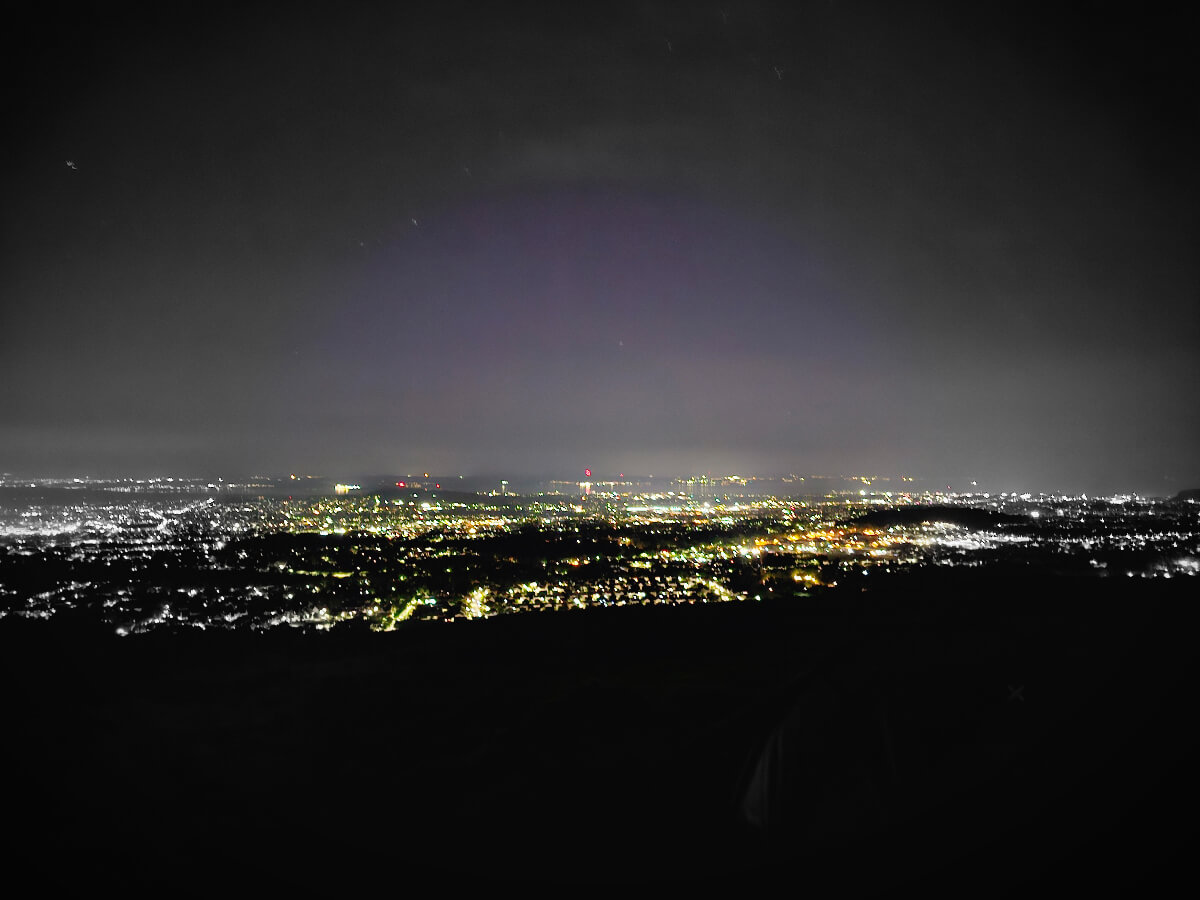
I had a fire going, obviously. My tent was outside the wood area, which is where I’m usually at. This was a calm night though, not windy at all.
By late evening, as soon as it got dark, the sky was shifting… Around midnight things really kicked off. I spent hours looking straight up, neck ruined by 2am and beyond that point I was getting tired. Still didn’t want to look away, it was the first time I’d seen the aroura so clearly in person.
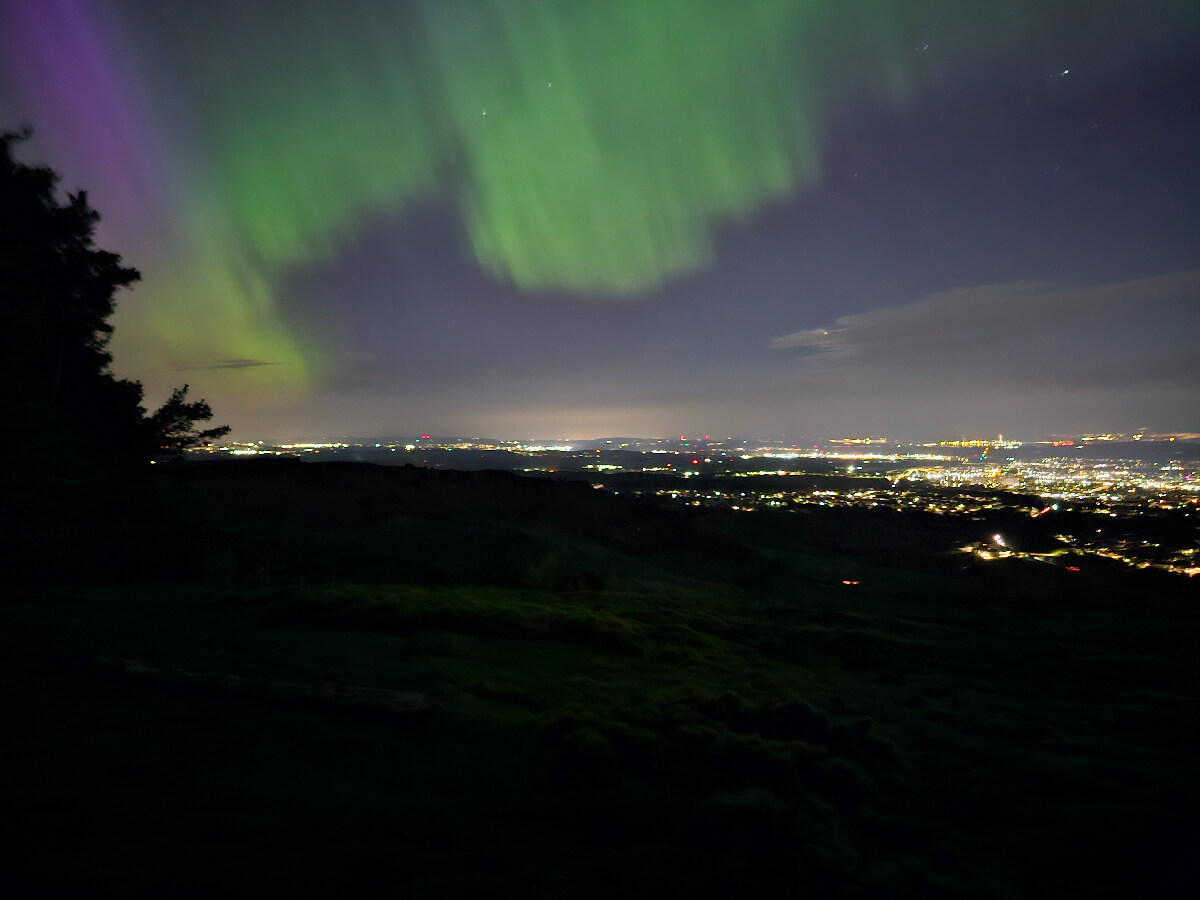
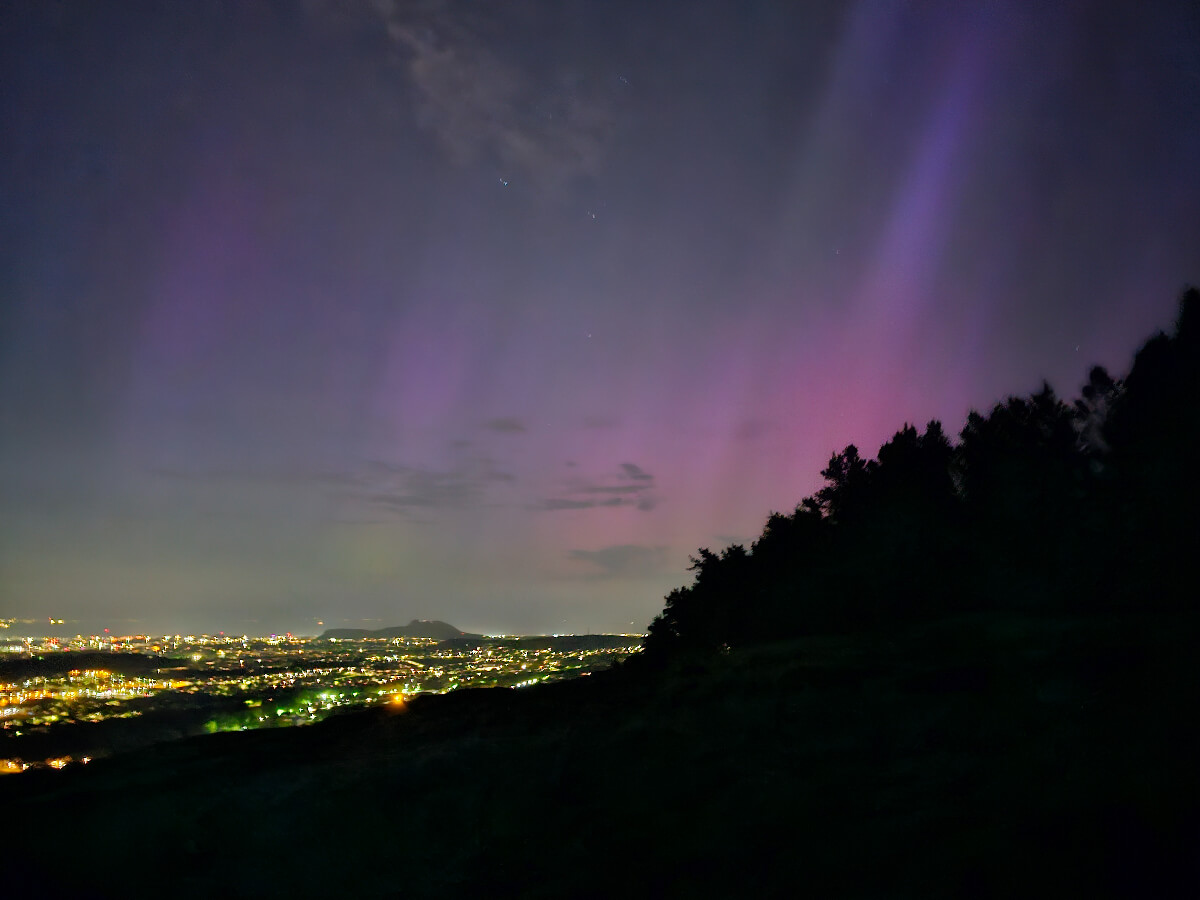
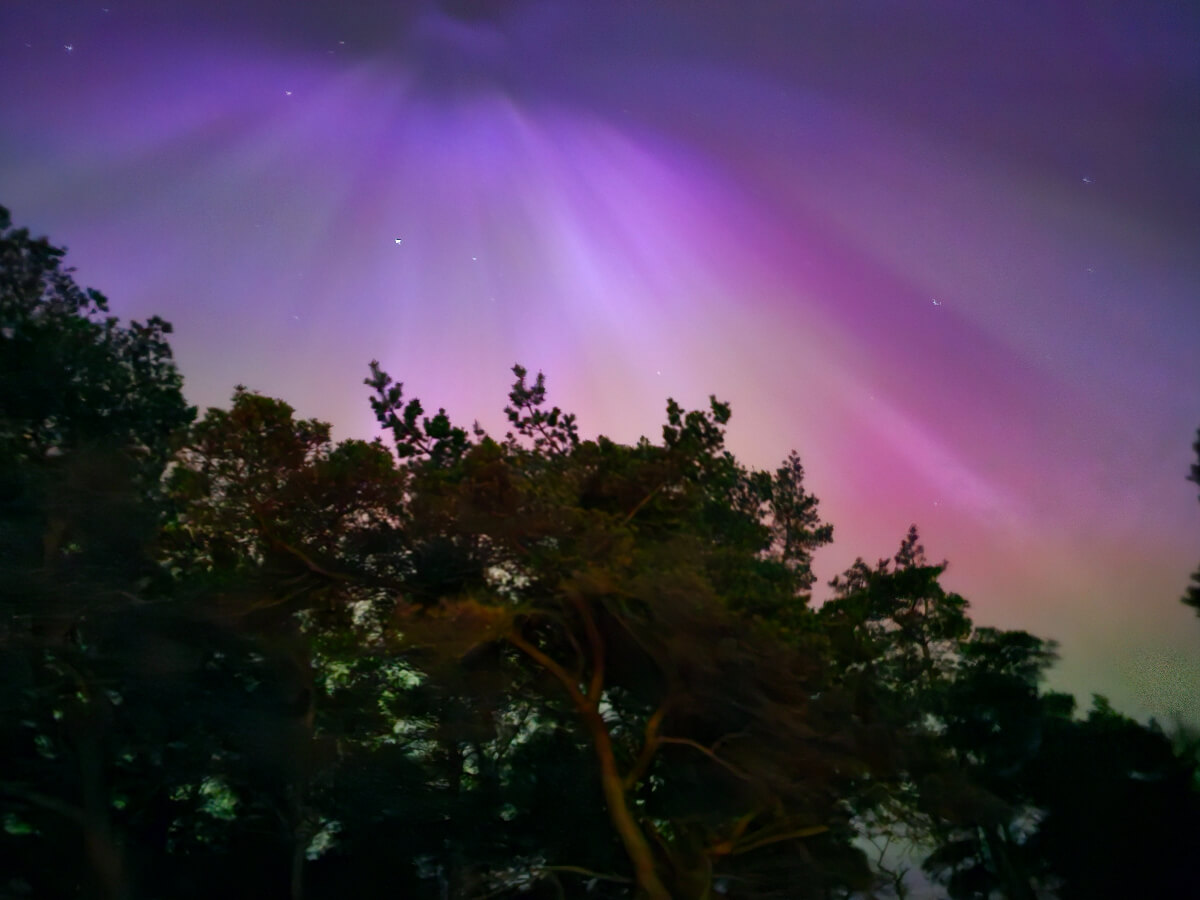
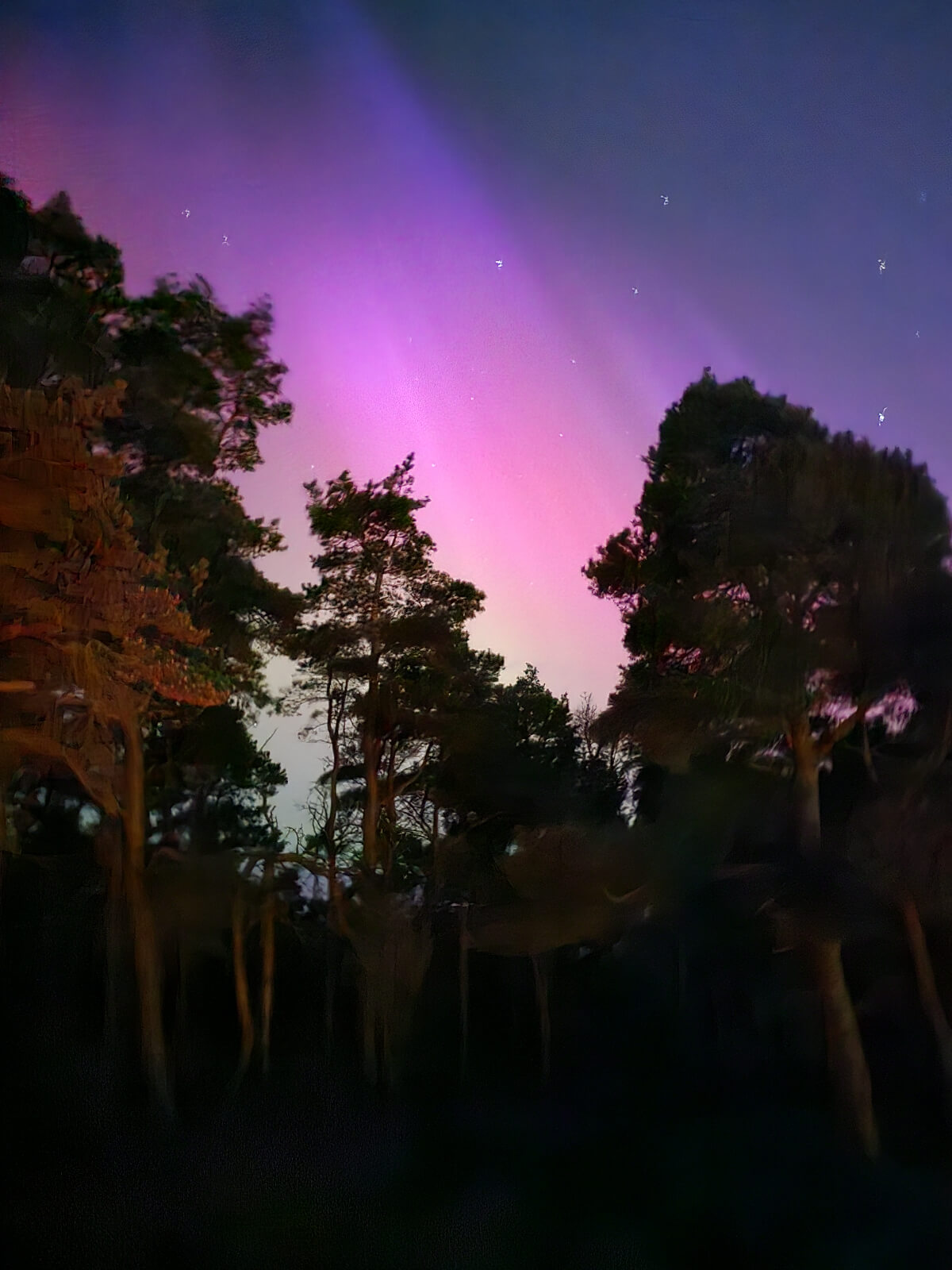
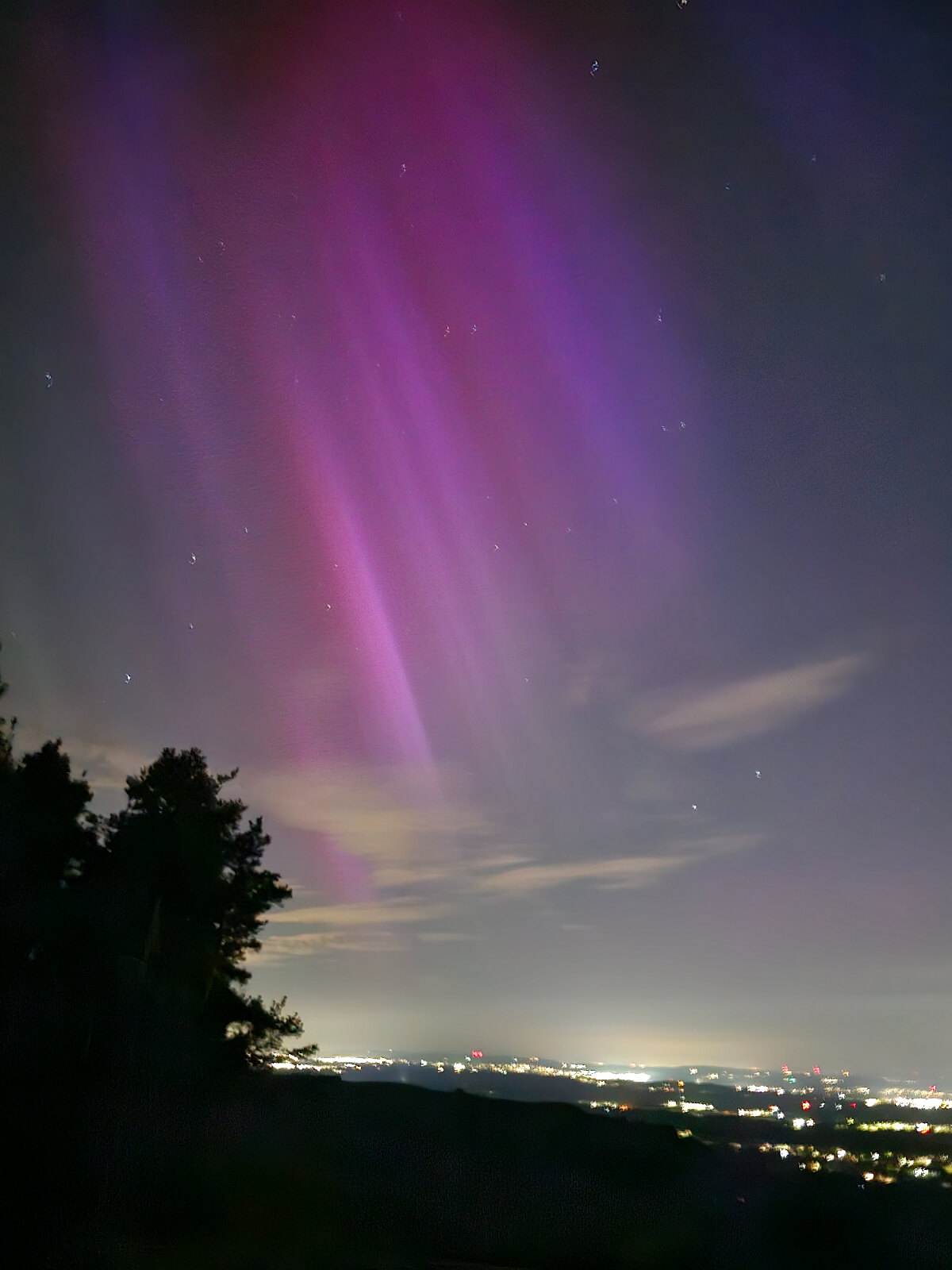
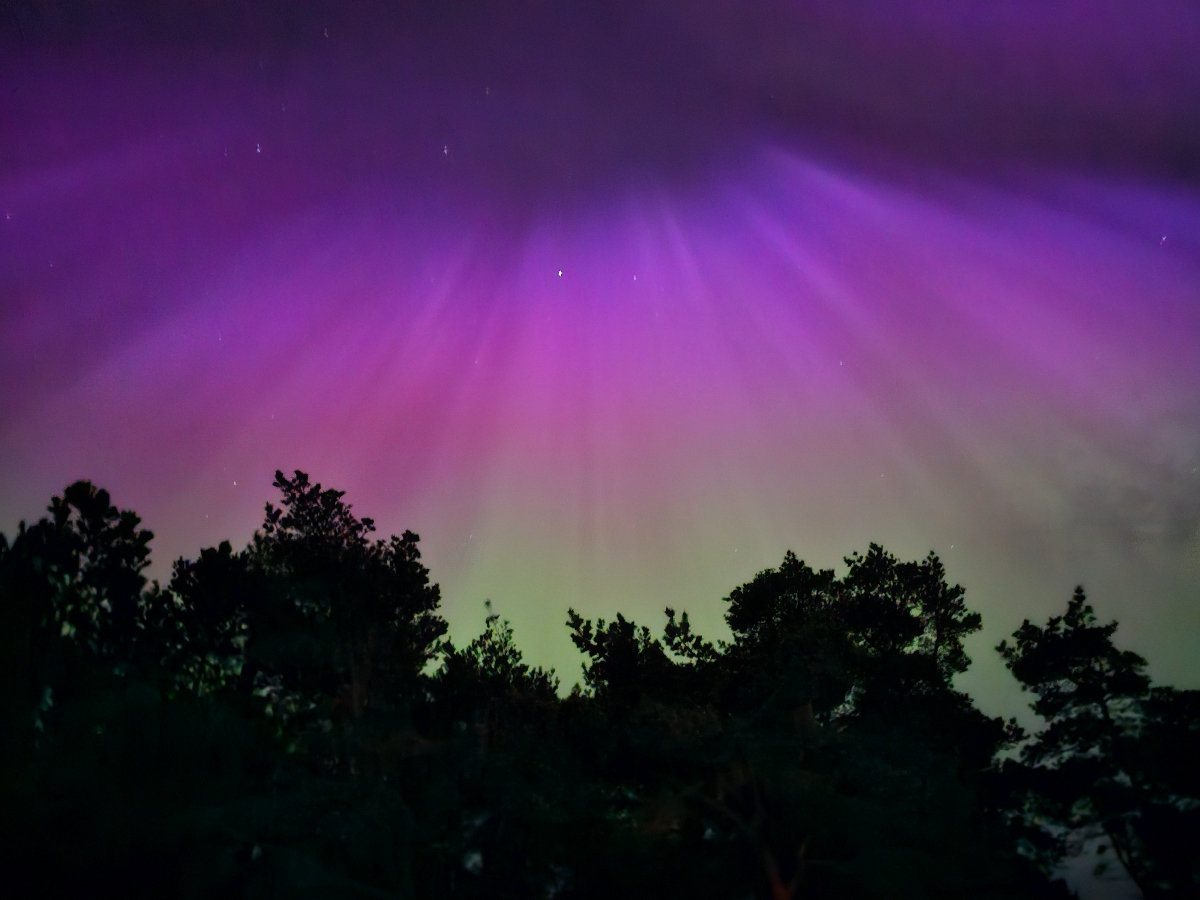
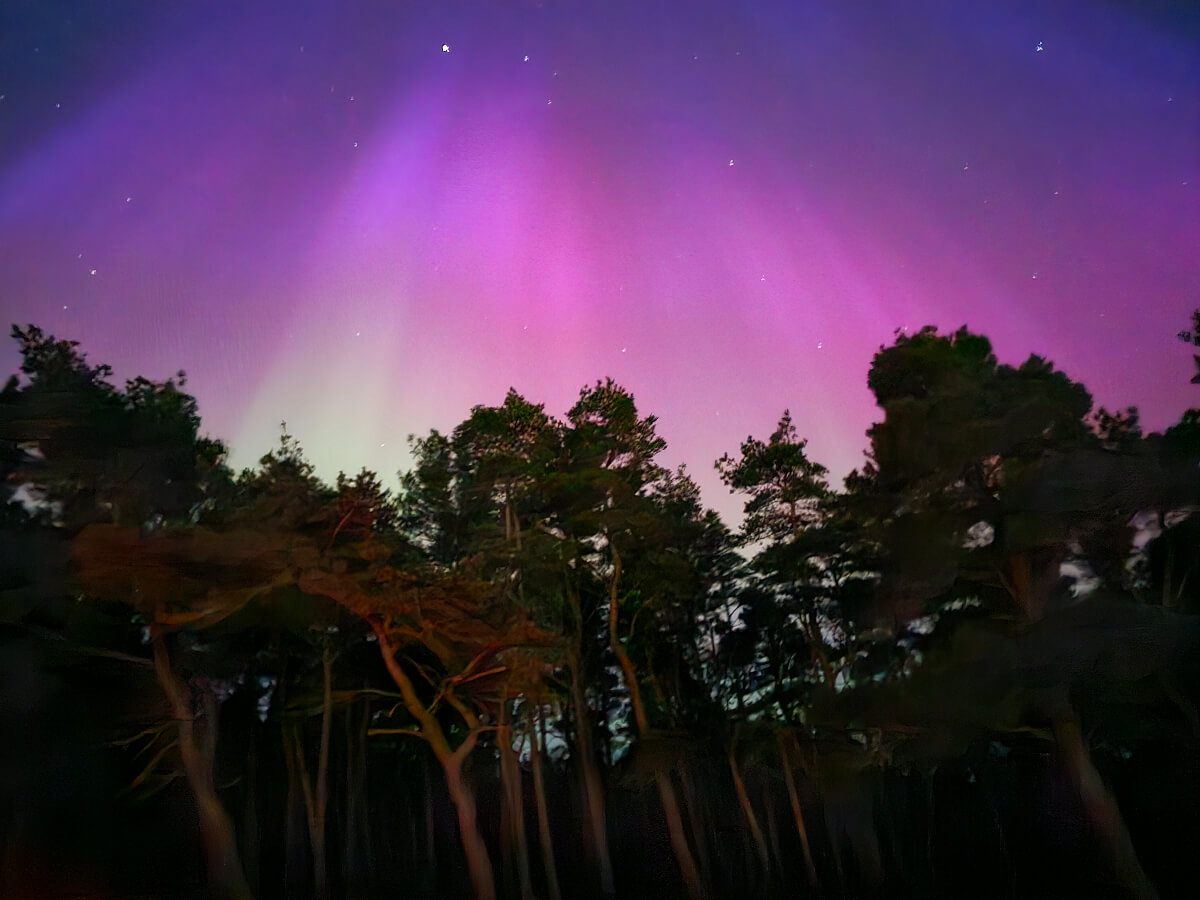
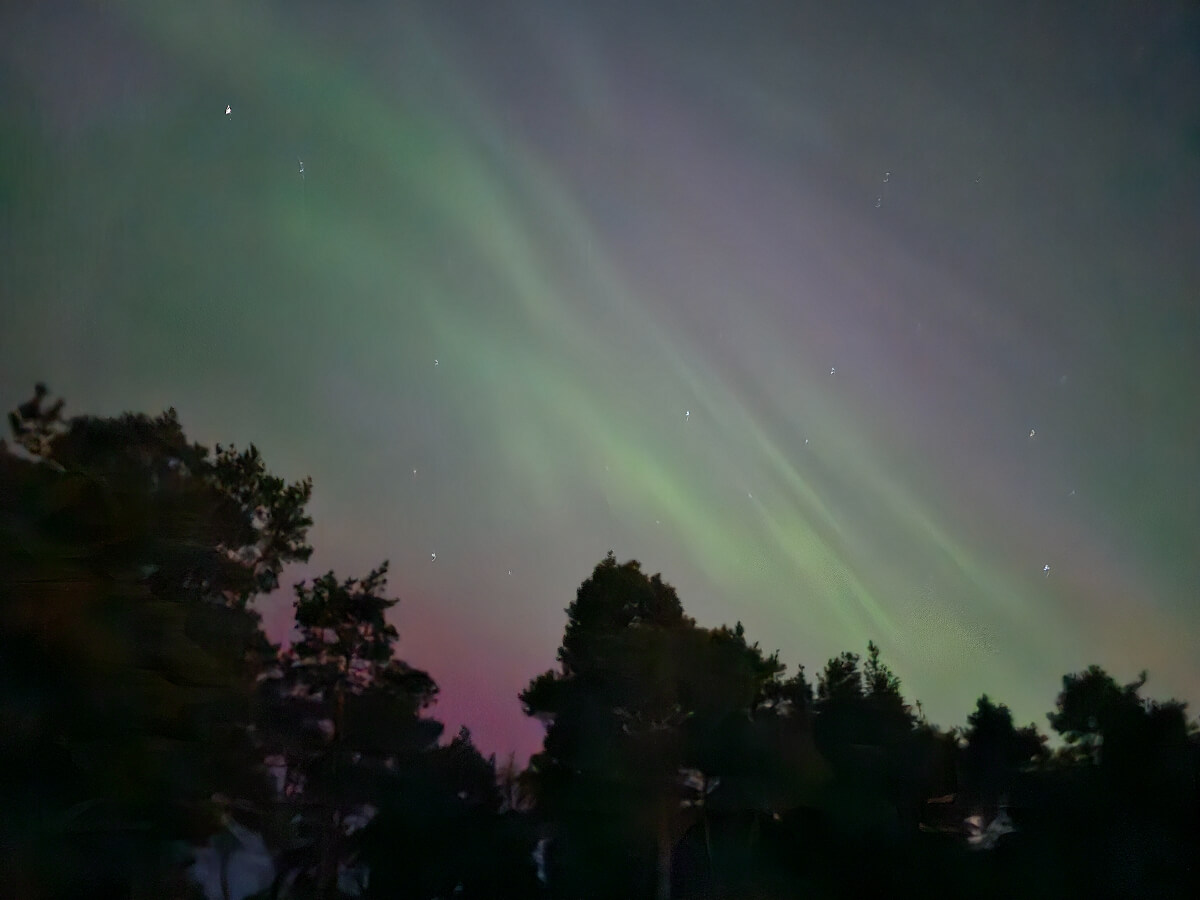
I sometimes quickly solar activity before heading out for a camp. I knew there might be a storm, but I never expected anything like the night I had here. I would have been camping regardless this night!
📸 You should know, a camera’s perspective of the aroura is not actually the same as what you see in person. I saw the sky glow red, as if it was burning in one area. I saw what I describe as shooting stars of clouds coming from the centre of the sky. It was crazy, even if the photos don’t actually represent what I saw. It was special.
October 2024: Craiglockhart Hill
This second time, I saw people posting photos online in the evening during eating or cooking dinner. It was already dark, and I just needed to check it out. To get up to the top of Craiglockhart Hill is only a 15 min walk from my house, which overlooks all of Edinburgh.
I boosted out and took some photos. I needed to after seeing what I saw last time.
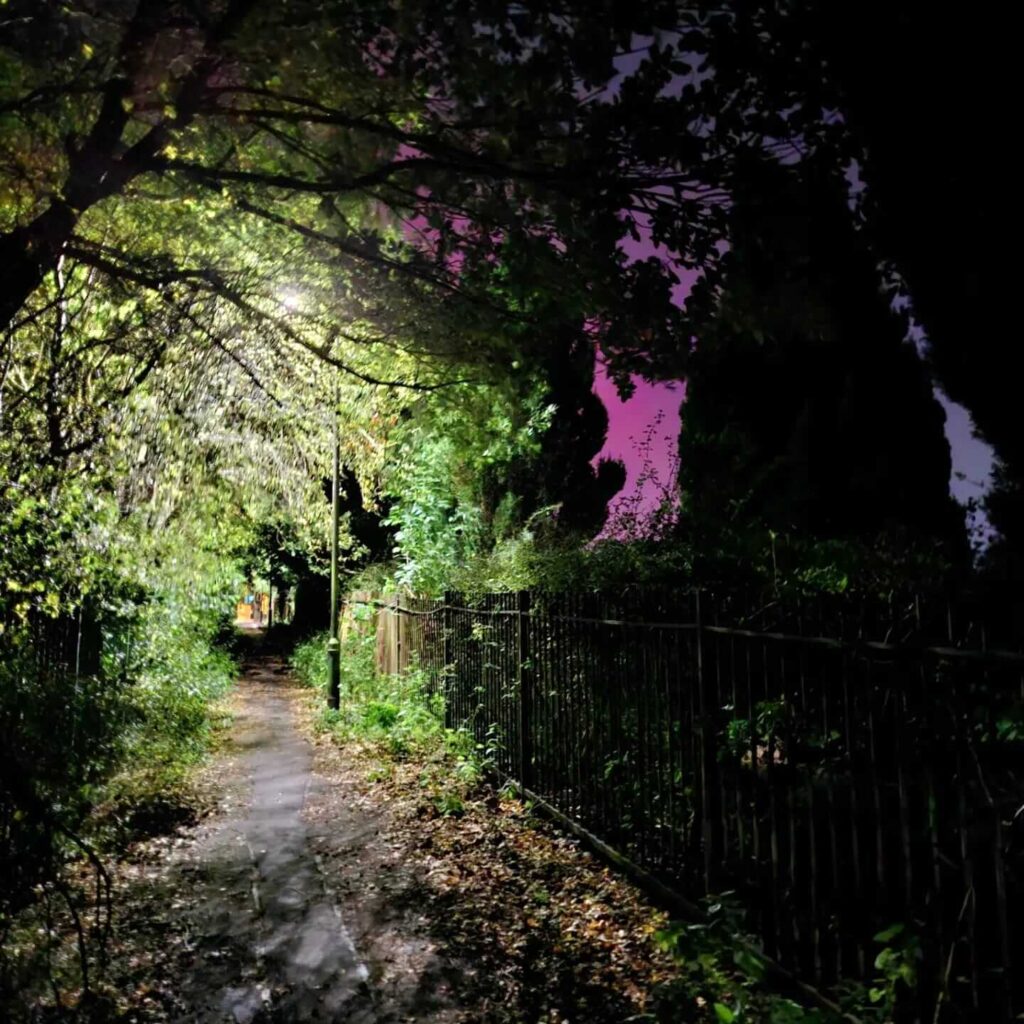
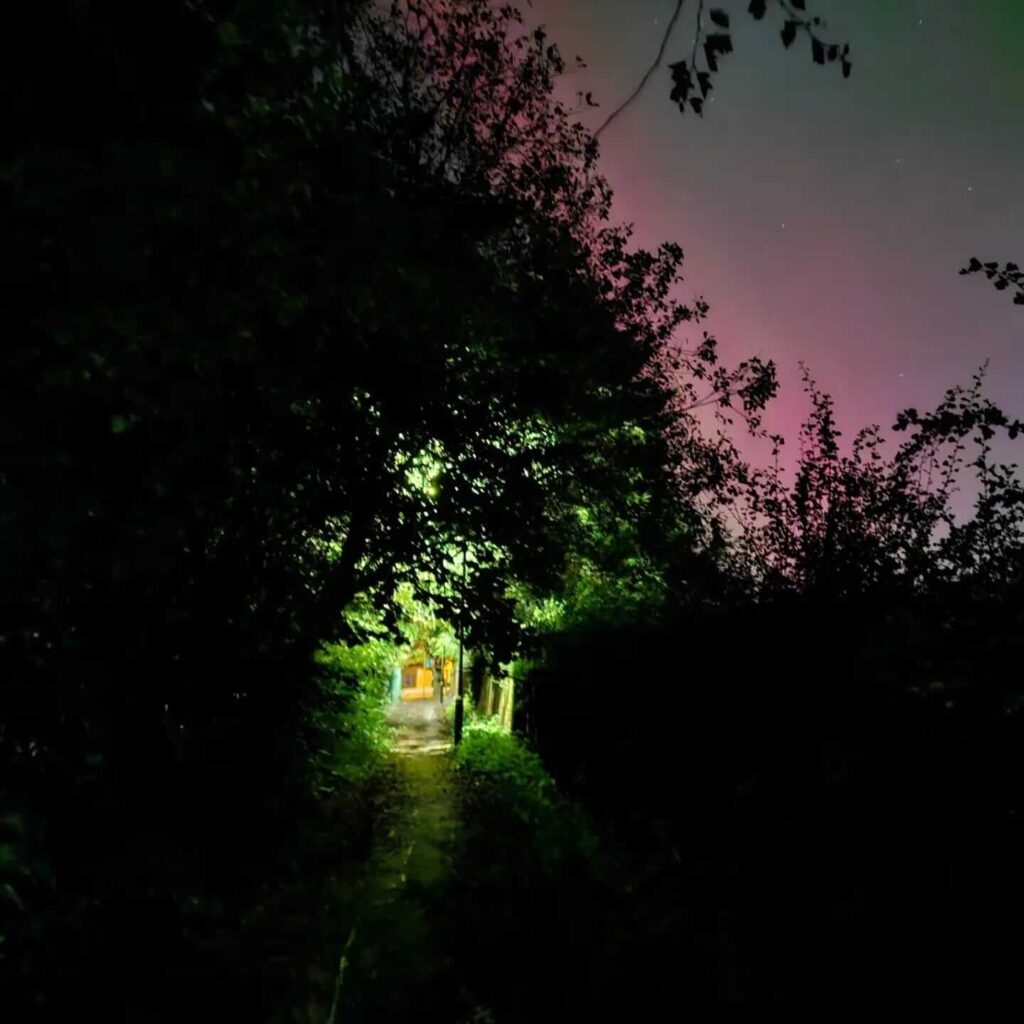
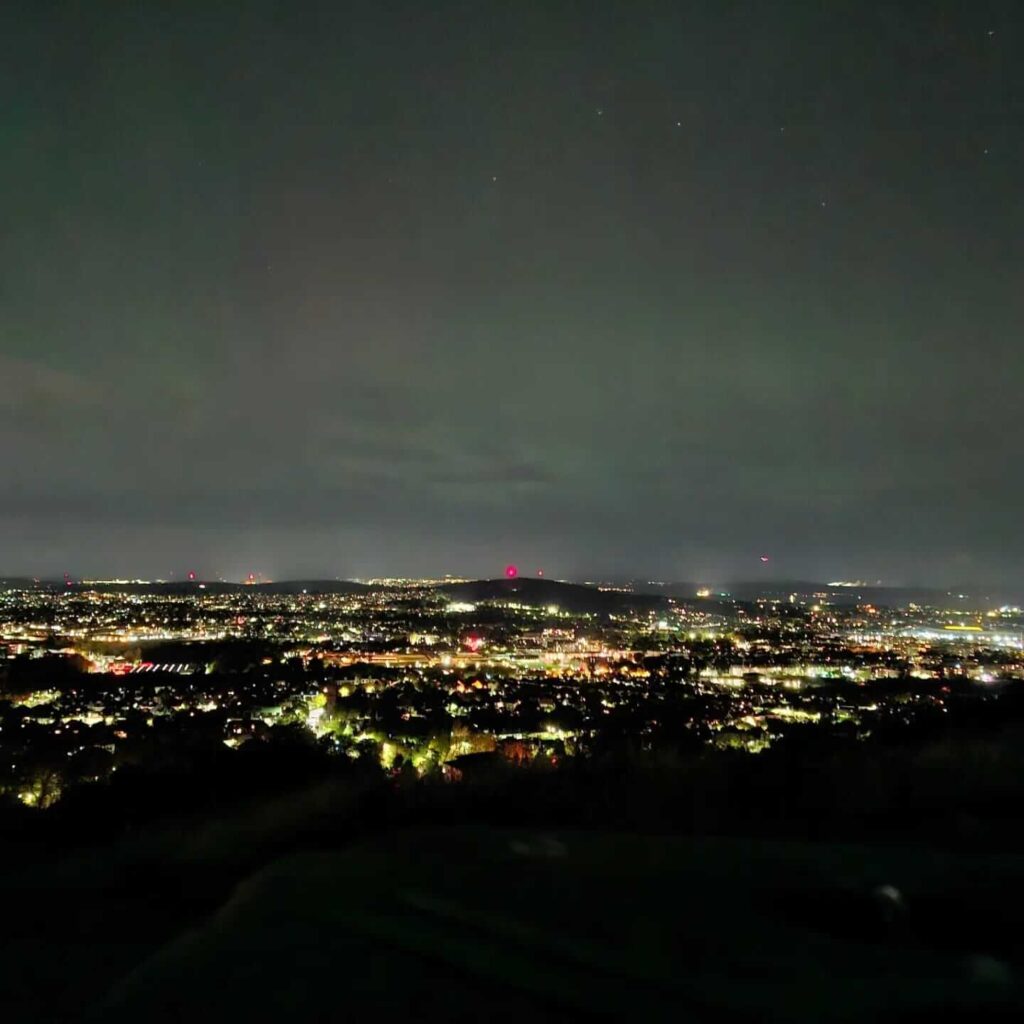
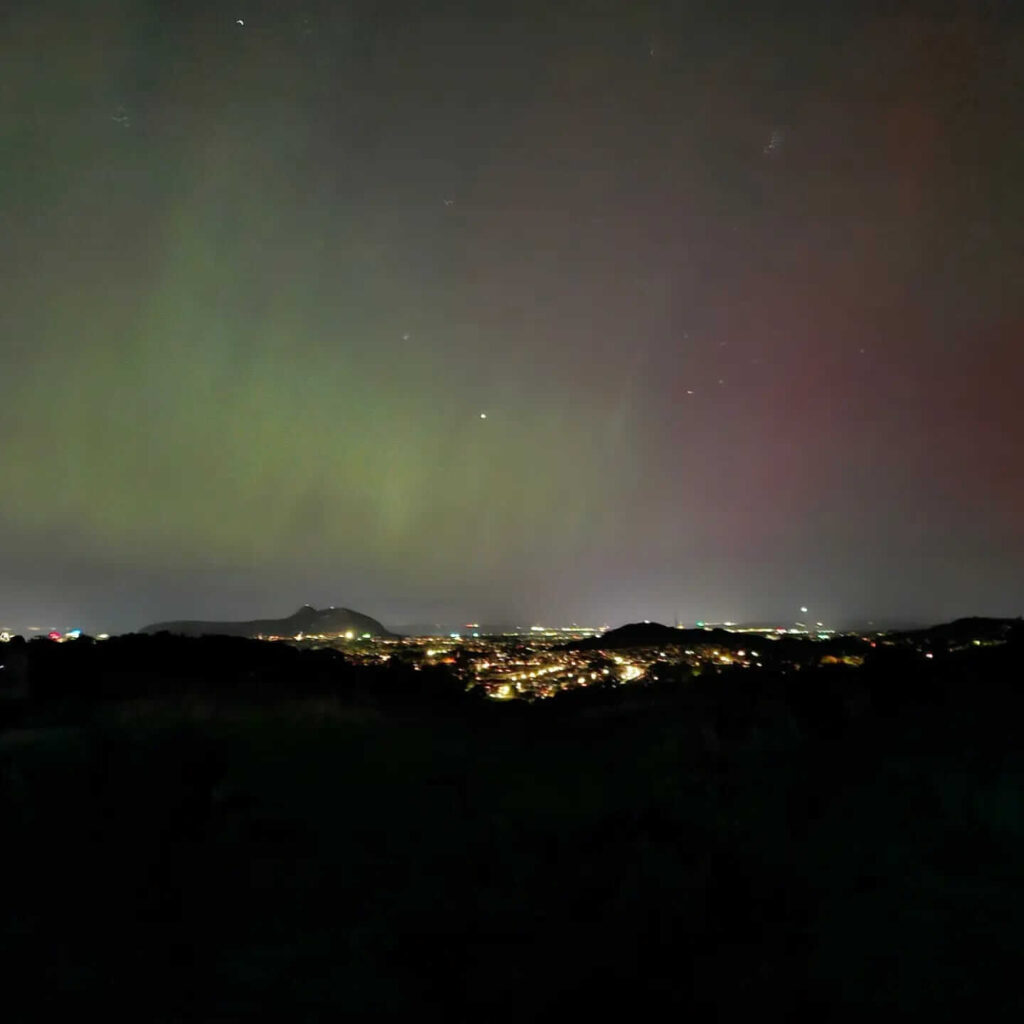
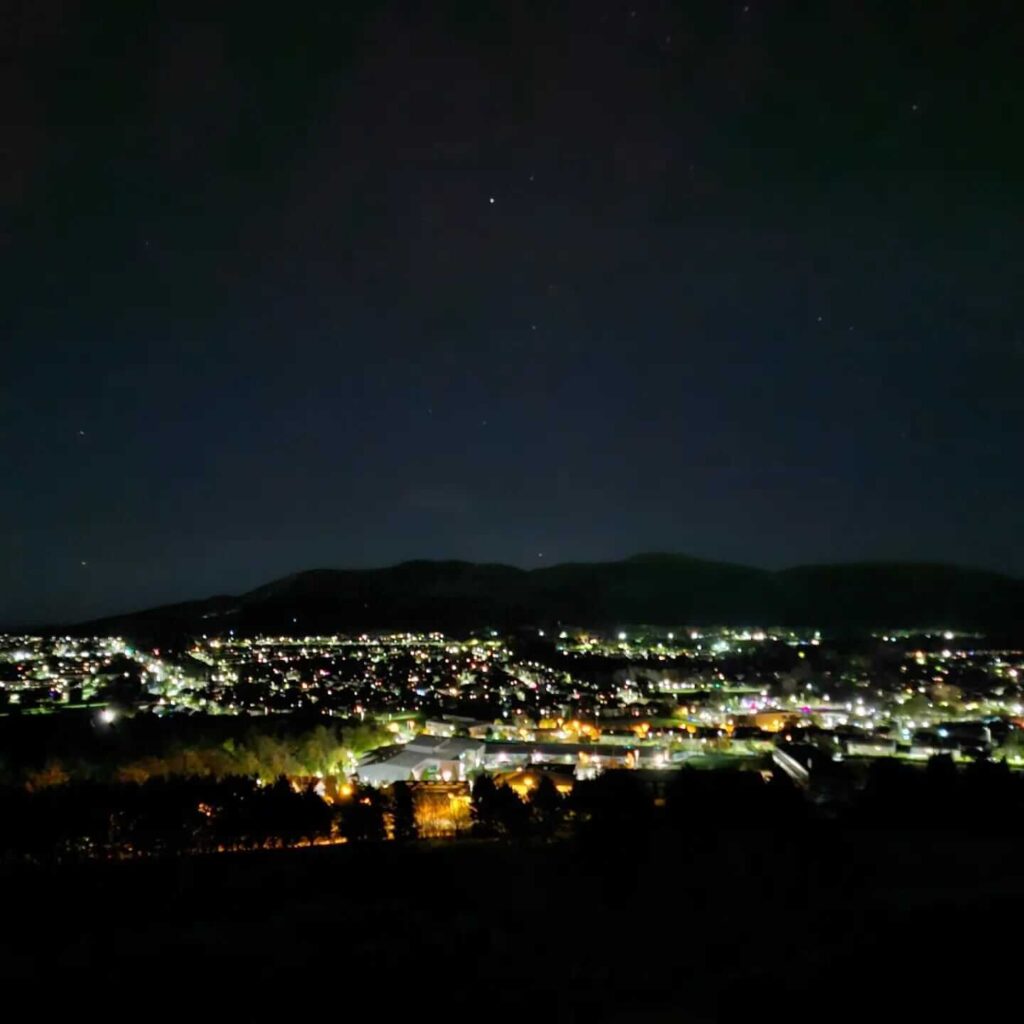
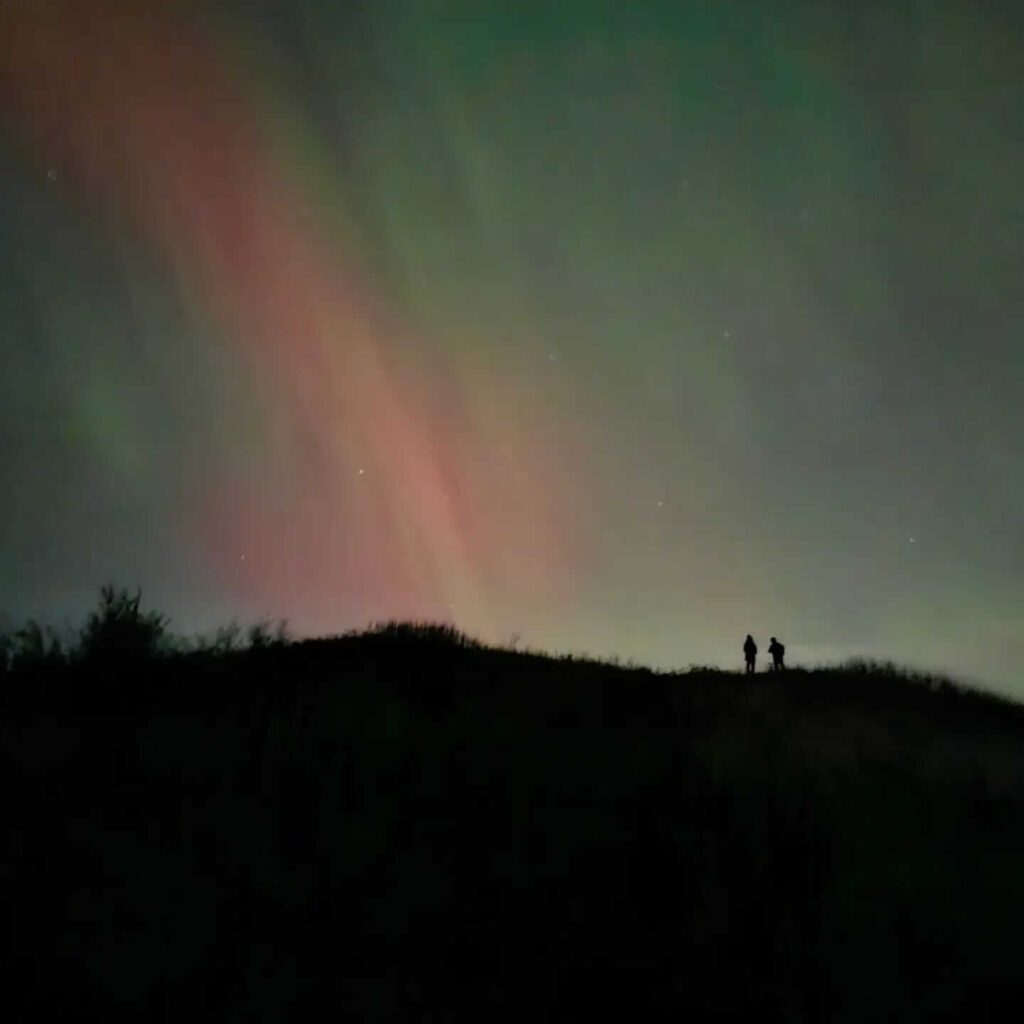
More Photos
📸 View the photos in my gallery here
(All photos from both nights — Craiglockhart and the Pentlands, and is where I’ll update with future photos)
Seeing It For Yourself
These events are rare where I live, but if you’re in more northern areas of Scotland the chances of seeing the Aurora Borealis obviously increase.
If you’re going to be out in the stars at night in the Northern Hemisphere, checkout the following links to help track active solar storms:
- AuroraWatch UK for a quick view of current/last 24hrs activity
- SpaceWeather.com for more on solar activity
- SpaceWeatherNews (YouTube) maybe you prefer a video
Hope all this was good 😉
Leave a Reply